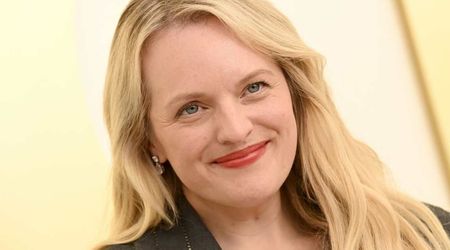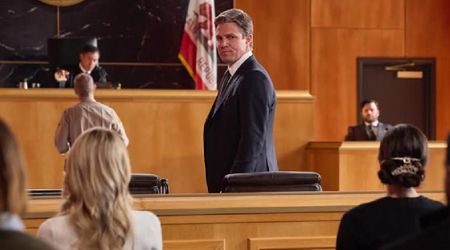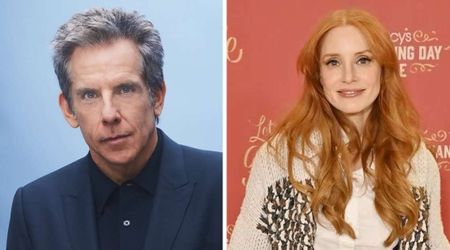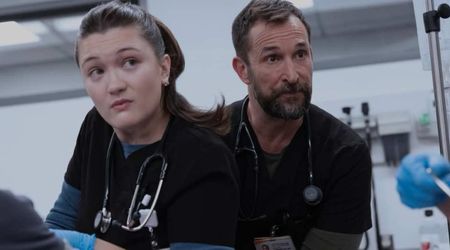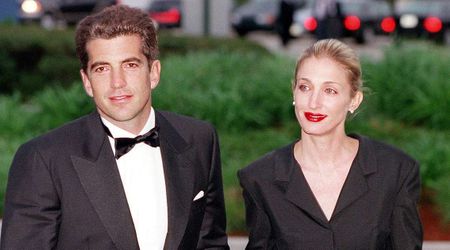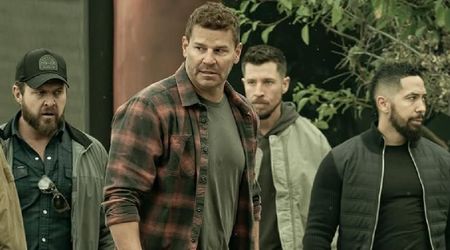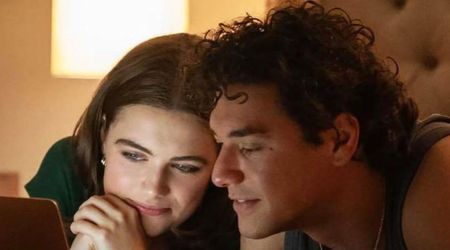'The Surgeon's Cut' Episode 3: Who is Dr Nancy Ascher? Meet the first woman who performed a liver transplant

Spoilers for 'The Surgeon's Cut'
Dr Nancy Ascher used to be frightened of monsters, ones she pictured living under her bed. She had an epiphany that seems to have been a part of her life as a transplant surgeon — "If I became one of them, then it wouldn't be so frightening to me," she said. The episode 'Living Donor' takes us through Dr Nancy's journey growing up with an intellectual family, feminism and the determination to be close to perfect when it came to being a surgeon. It is a clear representation to a future generation of youngsters who look up to the accolades of a great mind. Telling her team, "I need better," may seem daunting, but as Dr Nancy reveals, her students tell her that she's in their minds after years of working with her. A stern attitude and incredible skill are what Dr Nancy is made of and among many other accomplishments, she is the first woman to perform a liver transplant.
"I am very serious in the operating room, I tell people it's fine to laugh and joke after the job is done," said Dr Nancy who belies that liver transplants is an "incredible combination of intellectual pursuit and technical skill". She says that if done right, it is "incredibly fulfilling". Throughout the episode, the audience hears the voices of her students who speak in the background with one telling us that Dr Nancy has pioneered aspects of surgery both nationally and internationally and another adding that the surgeon is the "the constant pursuit of absolute undeniable excellence".
Dr Nancy's introduction to her episode will have you in awe of how much she's done in her life. She is a surgeon, leader, scholar, researcher, diplomat and a spokesman for the ethics of transplantation worldwide. She boasts over 400 per review works and as a colleague said, her awards and academic accolades "are too numerous to count". She is also a member of the WHO task force on organ donations and transplantations to combat organ trafficking. In 'Living Donor', Dr Nancy explains how she wanted a career that would keep her occupied, interested and excited for the next 20-30 years. "That's what I have," she said.
The case that is the center of the episode is that of a patient named Maria and her daughter Adriana. Maria has a disease called nonalcoholic steatohepatitis, most commonly known in the medical field as NASH, and her daughter at 22 has come forward to be her mothers' live donor. Dr Nancy performs the removal in parts of Adriana's liver while her husband, Dr Roberts, re-implants the donor liver into the recipient, Maria.
"Patience is the name of the game," Dr Nancy said speaking of 4-8 operations — "you just have to go slow enough so you don't make any mistakes." The surgery was successful, but the episode spent its time taking us into the mind of the genius that is Dr Nancy. She explains that when she was first in the OR in med school, she was sick to her stomach and now she tells her students that it's okay and all that means is that they will get used to it, not that they can't do it. "I have a problem with seeing people in pain. You got to see the monster on the screen right?"

The transplant surgeon revealed that she was one of the four children in her family. "Not the youngest, not the oldest, not a boy", so they was little expectation from her. "But, I was competitive, I wanted to be number one," said Dr Nancy. She grew up with a mother who was a teacher and a father who was a doctor and was brought up in a way where she was told she could do anything she wanted. "But we had to service, we could not do business."
Back in the 1950's, Dr Nancy spoke of how many transplant surgeons were looked at to be doing "unnatural" acts, even in the case of the surgeon Joseph Murray who performed a kidney transplant on the Herrick Twins for which he received a Nobel price. "He was attacked publicly as being Dr Frankenstein," said Dr Nancy. She also revealed that while Starzi, Bismuth and Pichlmayr were the father of transplants and people who "really" started the field of liver transplantation. "We are the generation of people that made liver transplantation a clinical reality."
"I was taught to have fear and respect for the liver because it's so vascular. It's like dancing on the edge because if you make a mistake it's really costly for the patient. It's the monster under the stairs. The liver sits right on top of the vena cava, which is the main big vein in your body — if you get into the vena cava, you can bleed to death very easily. So, I think you have to have fearlessness, tempered by fear of failure. It is mastery. It is doing something nearly perfectly. To me it's like a symphony, it's very beautiful," said Dr Nancy of her path in medicine.
Feminism also played a huge part in Dr Nancy's life. When she applied for medical school, it was rare for women to go there. In her class, out of the 220 students, there were only 20 women, two of whom went into surgery. Dr Nancy also revealed that when she applied, she was asked to have an interview with a psychiatrist who had asked her inappropriate questions such as, "Do you think you can be satisfied with one partner?" She also had an OBGYN professor who would show images of naked women as part of the lecture which saw all his 20 female students walk out of his class. "We were proud and we felt that we were making it — that we were part of the women's movement in the most meaningful way," said Dr Nancy.
She would wear the scrub suits, not the scrub dress, and would wear the top backward because it had a low cut on the front. "I would wear it backward so that people would take me seriously," she added. She became the head of her department in 1999 as she wanted the "opportunity to leave" her "own imprint" and since then has helped people under her wing. Dr Carter Lebreas said this of Dr Nancy: "She has taught me how not to lose track of whatever version of being a woman I want to be even while I'm being a surgeon — to bring that into surgery and not conform in ways that aren't necessary."
On a more somber note, Dr Nancy was a donor herself. A decade ago, her sister Sheila had bone pain for which she was taking anti-inflammatories but it ended up damaging her kidneys. Dr Nancy's brother had come forward to donate his kidney but they found out that he had prostate cancer in his workup, her other sister came forward but was ABO-incompatible which left Dr Nancy, who said that she made an "emotional decision" to help her sister get well with a kidney donation. The process, she said, gave her a "renewed appreciated for what patients had to go through" because at that point she was not in charge anymore, she was the patient. Unfortunately, Sheila died three years later in her home. "I have to move forward," Dr Nancy said.
She is heavily involved in bringing awareness to important aspects of organ and human trafficking, which the documentary reveals. "You need both a live donor program and a deceased donor program to really meet the needs of most populations," she revealed. Dr Roberst says his wife has a "command presence", Dr Nancy's students say that she is "technically gifted, it's like watching art", and 'Living Donor' shows us the surgeon's determination to help people move forward in revolutionizing transplantation.
"I feel like that there is this incredible intimacy when you are inside someone else when you are touching someone else when you are bringing them back to life. I think there is nothing more intimate," Dr Nancy said.
'The Surgeon's Cut' is now available to stream on Netflix.

